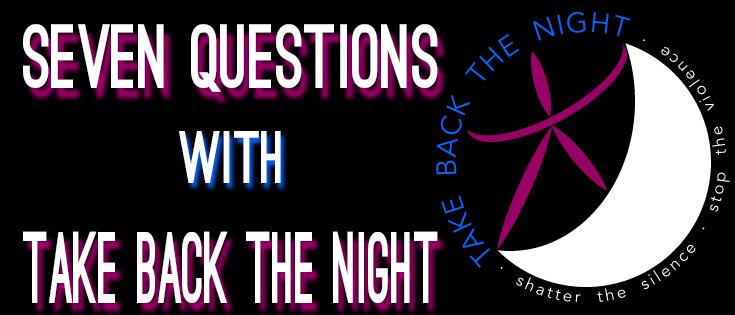Since 1975, women have been holding Take Back the Night events and combatting sexual assault, domestic violence, dating violence and sexual abuse. In 2001, Take Back the Night was officially established as a non-profit organization dedicated to those causes.
The Month of April is Sexual Assault Awareness Month, and as part of its campaign to end sexual and domestic violence, Georgetown University Take Bake The Night (GU TBTN) is holding Take Back The Night Week from April 8-12. To learn more about TBTN Week, sexual assault on college campuses, and most importantly, what Hoyas can do to combat gender-based violence, we sat down with Deanna Arthur (SFS ’14) and Kat Kelley (NHS ’14), Co-Chairs of GU TBTN, and Mary Toscano (COL ’14), Domestic Violence Liaison for GU TBTN.
What is GU TBTN and what is its focus?
“GU TBTN is an advocacy organization focused on fighting gender-based violence,” said Kelley. “Our main goal is to provide awareness and education about these types of violence. We really want to get people talking and thinking about these issues. We put on the Vagina Monologues every year, we do movie screenings and we especially put our focus on the month of April which is Sexual Assault Awareness Month.”
Currently, GU TBTN is leading numerous initiatives to raise awareness about sexual and domestic violence. According to Toscano, “We’ve done a lot of lobbying with other organizations for the reauthorization for the Violence Against Women Act (VAWA). We had a petition and, for us, it was really important to educate other students about VAWA. Another thing that we’re working on is an event specifically devoted to Domestic Violence that will take place during TBTN Week. We’re going to photograph people in Red Square holding signs and the whole purpose of the event is to incorporate people from different perspectives.” The event will feature members from GU Pride, international groups and other student organizations.
Though it is something that is commonly talked about, many people don’t know what sexual assault really is. What is the real definition sexual assault?
“Legally sexual assault is any unwanted sexual touching,” said Kelley, “It’s especially defined by the experience of the survivor. There’s not one situation or one act that defines it. If an unwanted sexual experience causes this type of trauma in the survivor, it’s something that needs to be dealt with legitimacy.”
Arthur mentioned that sexual assault is a prevalent issue on college campuses, including here at Georgetown. “The statistic says that 1 in 4 college women will be sexually assaulted, and for Georgetown, the statistic is similar,” said Arthur. “For adult males, it’s 1 in 33. There aren’t as many statistics for college age males—and sexual assaults in males are significantly underreported. That’s the other thing—the 1 in 4 statistic is just the statistic that has been reported. So it’s definitely an issue– even here. Many people think that here at Georgetown, we don’t have to worry about these things, ‘it’s something distant, it’s something foreign.’ But it happens and it happens in a lot of different forms… we’re not immune from it.”
When is GU TBTN Week, and what events will it include?
TBTN Week is going to be held from April 8-13 and our thesis for this year’s TBTN Week is ‘It’s Not a Woman’s Issue, It’s a Hoya’s Issue,’ said Arthur. Our goal is to reach out to different student groups and get them actively involved in this year’s events and raise awareness on campus about gender-based violence.
Here is the line-up for the week’s events:
Monday, April 8 Kickoff in Red Square with the Corp Service Outreach Committee
Monday, April 8 Evening Two bloggers from Feministing will address students about Rape Culture and Sexual Assault
Tuesday, April 9 Screening of The Invisible War and focus on rape in the military
“We really want to show that sexual assault has an effect on everybody, even places like the military, where you wouldn’t normally associate with sexual assault,” said Kelley.
Wednesday, April 10 The Week’s flagship event, ‘It Happens Here’
Thursday, April 11 Domestic Violence Awareness with numerous student organizations
Friday, April 12 Partnering with Health Education Services Hoya Health Hut which will involve pledging to not partake in sexual violence
What is ‘It Happens Here’ and how can Hoyas become involved with the event?
It Happens Here is an program that will feature the experiences of members of the Georgetown Community. According to Arthur, “We’ve reached out to social media to collect anonymous stories and insight from survivors, allies and bystanders on campus. In addition, we’ve developed a blog piece that we’ve released on the Georgetown Women’s Center Blog and Feminists at Large, and we’re also going post that on the Corp Service and Outreach Committee.”
“Most importantly, said Arthur, “we also have a Google Form to collect anonymous submissions for the event. Everything is going to go through our contacts in the Women’s Center and we want to reassure everyone that the whole program is going to be put together delicately. On the submission forms, we have a lot of links to the resources on campus. We really want people here to be aware of campus resources. We want to take these stories– whether it’s a survivor of an assault here at Georgetown or what it’s like to hear rape jokes or to be an ally or a friend—what they experienced, what they saw, what they wish they could have done better– and raise awareness on campus.
To access the Google Form and submit a personal experience, click here. Remember, all stories will be anonymous and handled with the utmost discretion.
How can we combat sexual assault on campus?
According to Toscano, some of the biggest problems with sexual assault today stem from societal stigmas and preconceived ideas. “We need to shift the focus on perpetrators, not victims,” said Toscano, “and we need to refocus the way we ask our questions and react to these events.”
Kelley said that we continue to ask the wrong questions when it comes to gender based violence. “We ask things like ‘What were you wearing?’, ‘What were you doing that night?’, ‘Why were you with that person?’ and ‘Why were you drinking that much?'”
“We also have all these societal myths,” said Kelley. “These include: ‘She was asking for it…’ or
‘He didn’t mean to…’ or ‘This type of thing only happens to women and only men perpetrate it.'” According to the girls, the most important thing when dealing with a sexual assault survivor is to believe them and reject preconceived myths about sexual assault.
Above all else, the girls wanted to spread the word about the wealth of resources on campus for both women and men. These resources can provide Housing and Academic Accommodations for survivors of sexual violence.
Resources include:
-Sexual Assault and Relationship Violence Counselors, Bridget Sherry, who works with ESCAPE and Health Education Services and Carol Day, who is Director of Health Education Services
-The Women’s Center (Located on the third floor of the Leavey Center)
–CAPS
“What’s key is that survivors have a safe space,” said Kelley. “If they want to tell a friend, or a chaplain, or a professor, or someone they are close to. It’s all about doing what feels safe and comfortable for them.”
For more information on GU TBTN, TBTN Week or Resources on the Georgetown Campus, like Georgetown Take Back The Night on Facebook or email them at [email protected]









